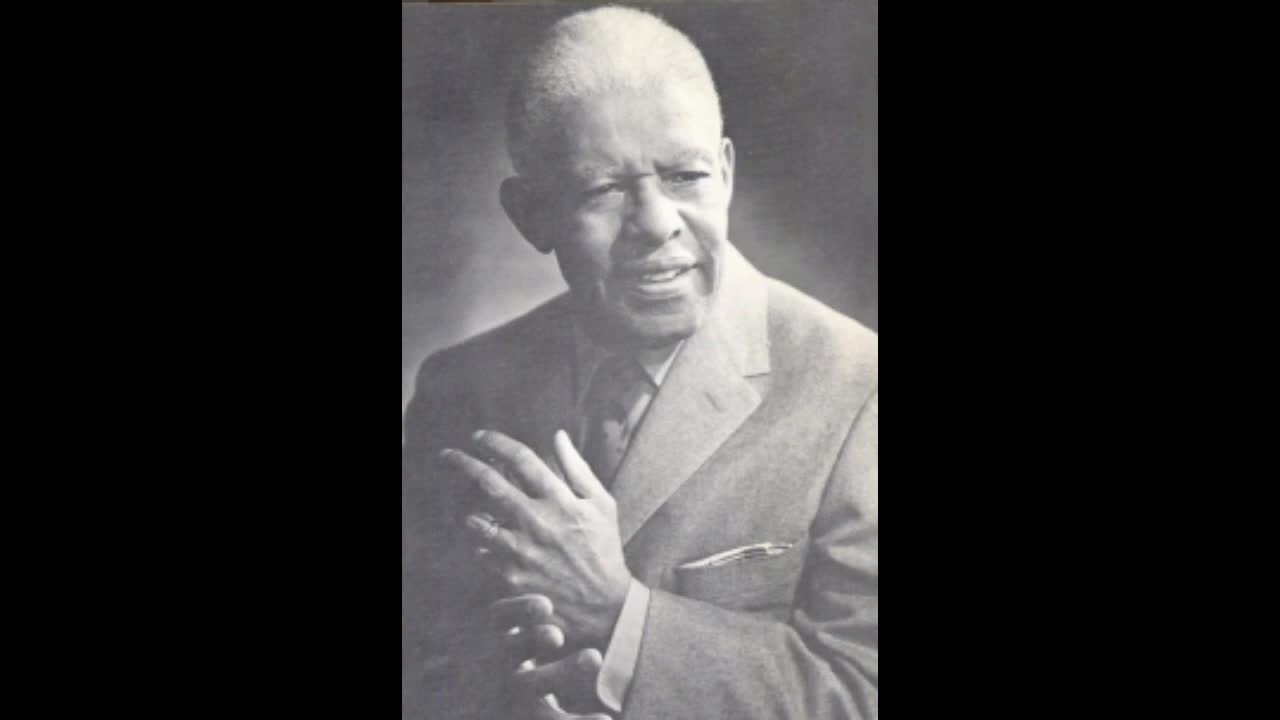Premium Only Content

Black History: ROLAND HAYES (1887-1976)
The son of former slaves, Roland W. Hayes, born June 3, 1887 in Curryville, Georgia, became the first African American male to become an internationally acclaimed concert vocalist. As a youth, he sang in his Baptist church and on street corners for tips before attending Fisk University in Nashville, Tennessee where he performed and toured with the famed Fisk Jubilee Singers, an experience that eventually landed him in Boston. Working odd jobs, by 1915 Hayes had saved up enough money to rent Boston’s Symphony Hall and give his first recital to an audience stunned by his masterfully executed selection of Negro spirituals, lieder and arias by Schubert, Tchaikovsky, and Mozart. Continuing to act as his own promoter and manager, Hayes next toured the United States and England where in 1920 he performed for King George V and Queen Mary and studied lieder with Sir George Henschel.
Returning to the United States in 1922, Hayes was flattered by glowing reviews following concerts in Boston, Philadelphia, Detroit, and at New York City’s Carnegie Hall. He took additional voice lessons and there were several more tours of Europe, including a stop in the Soviet Union and a command performance for Queen Mother Maria Christina of Spain. A rather brutal racial incident in 1942 in Rome, Georgia involving Hayes and his family persuaded him to leave his home in the segregated South.
He published My Song in 1948, a collection of African American religious folk songs. Among his recognitions were the Spingarn Medal presented to him by the National Association of Colored People (NAACP) in 1924, eight honorary academic degrees, and induction into the Georgia Music Hall of Fame in 1991. In 1950, Hayes commenced a four-year stint teaching voice at Boston University, and in 1962, at age 75, he gave his farewell concert at Carnegie Hall. Hayes died in Boston on December 31, 1976. The Roland W. Hayes Museum in Calhoun, Georgia opened its doors in the year 2000.
-
 13:47
13:47
Forgotten Black History
6 months agoIndigenous Elder's Powerful Call 'It’s Time To Decolonize Your Mind
1801 -
 2:23:54
2:23:54
Badlands Media
23 hours agoDevolution Power Hour Ep. 363: Lawfare, Psyops, and the Great Narrative Reversal
76.6K19 -
 2:32:48
2:32:48
Tundra Tactical
4 hours ago $6.93 earnedSilencers, Senators, and Survival: Roasting Lies and a Security Breakdown of The MN Shooting
42.8K5 -
 LIVE
LIVE
Spartan
8 hours agoPro Halo Player | !politics Halo Infinite Ranked Arena into SWTOR and/or Gears Beta
253 watching -
 40:25
40:25
The Connect: With Johnny Mitchell
1 day ago $7.43 earnedBlackwater CEO Erik Prince Gets HONEST About The Israeli Invasion Of Lebanon
36.7K36 -

BlackDiamondGunsandGear
5 hours agoAfter Hours Armory / Is the World ENDING?
59.5K3 -
![[NEW] FIVE NIGHTS AT FREDDY'S - SECRET OF THE MIMIC - Horror Game](https://1a-1791.com/video/fww1/cb/s8/1/F/2/r/T/F2rTy.0kob-small-NEW-FIVE-NIGHTS-AT-FREDDYS-.jpg) 4:21:28
4:21:28
cosmicvandenim
7 hours ago[NEW] FIVE NIGHTS AT FREDDY'S - SECRET OF THE MIMIC - Horror Game
74K1 -
 2:14:37
2:14:37
DLDAfterDark
6 hours ago $1.17 earnedThe After Hours Armory - WWIII - The World Is Melting - Feat. Gideon Optics
36.2K3 -
 5:52:04
5:52:04
Right Side Broadcasting Network
5 days agoLIVE REPLAY: President Trump Honors U.S. Army's 250th Anniversary With a Grand Military Parade - 6/14/25
448K222 -
 5:10:52
5:10:52
Barry Cunningham
13 hours agoWATCH LIVE: PRESIDENT TRUMP SALUTES AMERICA'S MILITARY WITH HUGE PARADE!
106K84